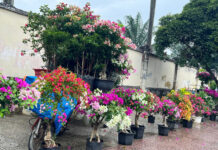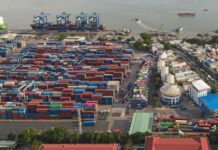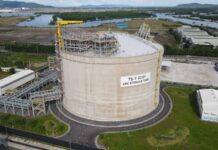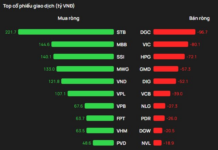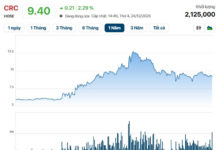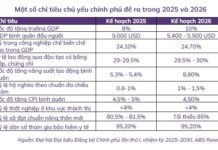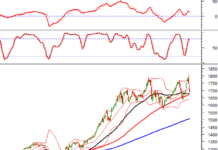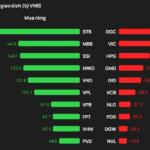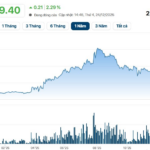Lack of Standardization in Durian Production: Addressing the Chaos
In a recent interview with Tien Phong newspaper, Mr. Nong Van Canh, Director of Nong Van Canh Cooperative (in Phu Rieng district, Binh Phuoc province), revealed that despite durian being one of Vietnam’s most valuable export crops, the current production processes in cooperatives are chaotic. Even long-time durian farmers are facing uncertainties.
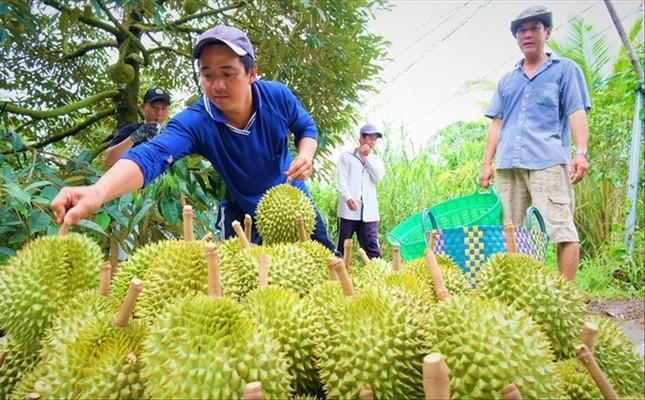
Lack of standardized production processes jeopardizes export opportunities.
According to Mr. Canh, his cooperative manages 30 hectares of durian farms with approximately 16 households. It is one of the first regions to be granted an export code by China. However, even with the same plantation code, farmers cultivate different durian varieties, such as Ri6, golden flesh, bitter gourd, and chuong bo. The use of fertilizers and pesticides, as well as the care procedures, vary from household to household within the same code region.
The director of the Nong Van Canh Cooperative believes that the lack of standards and regulations to monitor the production process makes it challenging to maintain consistent quality. “There are businesses interested in purchasing large quantities of durians, but they require uniform quality, which the cooperative cannot guarantee,” he added. Mr. Canh further shared his concerns about the long-term sustainability of the durian industry if this issue remains unresolved.
This issue is not unique to Mr. Canh’s cooperative but is prevalent in many other durian cooperatives and farming regions across Vietnam. As a result, several Vietnamese durian batches have been repeatedly warned and rejected by importing countries due to quality inconsistencies.
The director of LLC Company shared a similar experience, revealing that they had to destroy and sell off 2.5 tons of frozen durian intended for the Japanese market due to quality issues. The durians, sourced from a Vietnamese supplier, were harvested prematurely, resulting in a low brix level of only 14.1%, far below the minimum requirement of 26%. This incident caused a loss of over VND 300 million for the company, but the more significant impact was the damage to their reputation among Japanese retailers.
The Urgent Need for National Standards
According to businesses, Vietnamese durian lags behind Thailand in both quality and quantity, and the lack of a standardized and unified production process makes it challenging to establish a strong brand.
Ms. Ngo Tuong Vy, Director of the Import-Export Fruit Corporation, recently visited Thailand to observe their durian farming practices and was impressed by the country’s stringent regulations. In Thailand, farmers who harvest durians prematurely face legal consequences, and those responsible for code violations may even face imprisonment. Thailand has also set higher standards for its durian exports than the importing countries’ requirements, such as increasing the dry matter content in the fruit to 32%, while the norm is between 28-29%. Thai companies must meet this higher standard before being allowed to export. In contrast, Vietnam has a more relaxed approach, allowing each company to operate independently.
Ms. Vy emphasized the significant risks associated with this lack of standardization, stating that if Vietnamese durian batches repeatedly fail to meet the importing countries’ standards, there is a high possibility of facing export bans, damaging the reputation and brand of Vietnamese durian in the international market. She stressed the need for stricter production processes and a dedicated law to protect this billion-dollar industry.
Mr. Dang Phuc Nguyen, Secretary-General of the Vietnam Fruit and Vegetable Association, acknowledged that while the Ministry of Agriculture and Rural Development issued national standards and temporary technical guidelines for durian flower pruning and harvesting last year, these regulations have not effectively addressed the issues of premature harvesting and quality assurance.
According to Mr. Nguyen, Vietnam needs a unified national standard to ensure synchronization among cooperatives and farming regions. He suggested that the government should provide support to cooperatives through preferential policies for loans, agricultural supplies, and output linkages to encourage farmers to adhere to standardized production processes. Additionally, specific regulations and training programs are necessary to prevent premature durian harvesting and improve the skills and ethical standards of those involved in the process.
Ensuring the quality of exported durian is the top priority to maintain Vietnam’s presence in the global market, particularly in China, amidst increasing competition from Thailand, Malaysia, and other durian-producing countries.



